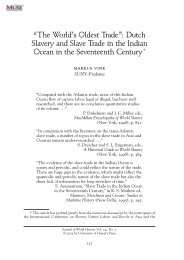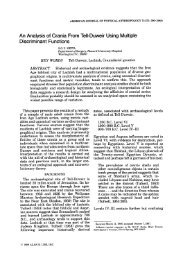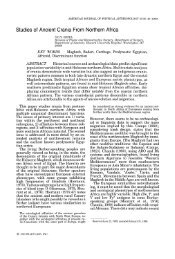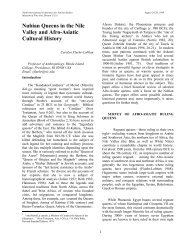THE FALSITY OF HEGEL'S THESES ON AFRICA
THE FALSITY OF HEGEL'S THESES ON AFRICA
THE FALSITY OF HEGEL'S THESES ON AFRICA
Create successful ePaper yourself
Turn your PDF publications into a flip-book with our unique Google optimized e-Paper software.
Camara / HEGEL’S <strong>THE</strong>SES <strong>ON</strong> <strong>AFRICA</strong> 87<br />
Another characteristic fact in reference to Negroes is slavery. ...<br />
Among Negroes, . . . parents sell their children, and conversely children<br />
their parents, as either has the opportunity....Thepolygamy<br />
of the Negroes has frequently for its object the having many children,<br />
to be sold, every one of them, into slavery [the king of Dahomey<br />
had 3,333 wives]. ...Viewedinthelight of such facts, we may<br />
conclude slavery to have been the occasion of the increase of human<br />
feeling among the Negroes. (pp. 97-98)<br />
The majority of sources agree on the total opposite of Hegel’s theses.<br />
Slaves in Africa—and this without any value judgment—were,<br />
more than anywhere else, integrated into social life. They were neither<br />
pushed aside nor reduced to mere means of production as in a<br />
slave regime. As Pathé Diagne (1976) says, “Slaves are not, as in<br />
the Greco-Roman or Asian world, a pure relation of exploitation.<br />
For a long time, the institutionalization of slavery has met fierce<br />
opposition” (p. 24).<br />
According to Diop, Basil Davidson, Paul Bohannan, Philip Curtain,<br />
Colin Turnbull, and most Africanists, traditional African societies<br />
downplay isolation and individualism and emphasize communities<br />
based on strong family relationships. In these societies, all<br />
members are regarded as part of an extended family, making the<br />
selling of relatives unacceptable. Human bondage did exist in<br />
Africa, but it was a local serfdom, very different from the largescale<br />
monopolized commerce of human beings. The purpose of the<br />
Arab and European system of slavery was to provide plantations,<br />
mines, and factories with a forced and free labor. Diagne’s point is<br />
that human bondage in Africa was not primarily economic: It was<br />
primarily social and political. As he explains (Diagne, 1976),<br />
“Political and economic rights are granted to all social categories<br />
no matter what order, cast or corporation they belong to.” That is<br />
why slaves could move up into the ranks of free people. They were<br />
granted land (for life in many parts of Africa) to cultivate for their<br />
own use. They could marry other slaves, and their children would<br />
be free citizens. Slaves often occupied important positions in society.<br />
They were used in domestic and also in political and military<br />
activities. However, as Diagne stresses, it appears that it is only<br />
with the advent of the Triangular Commerce, better known as the


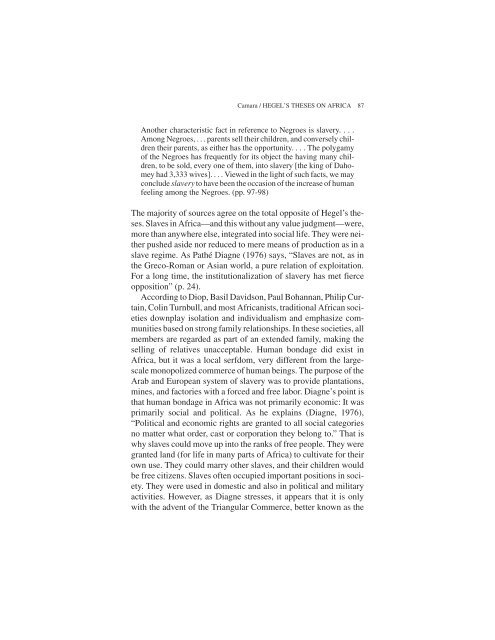

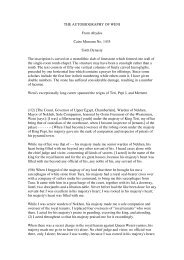
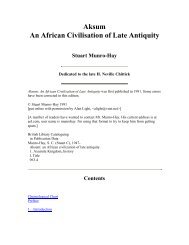
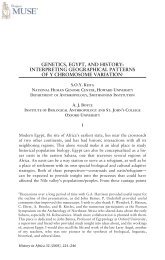
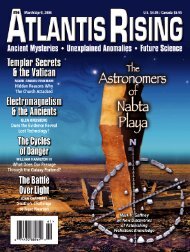
![The Negro trail blazers of California [microform] : a ... - Homestead](https://img.yumpu.com/32436613/1/174x260/the-negro-trail-blazers-of-california-microform-a-homestead.jpg?quality=85)
